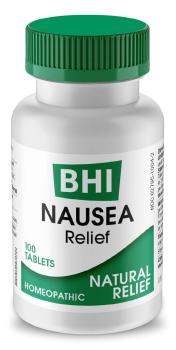Unfortunately, all that most doctors have to offer are medications such as Valium and antidepressants. These are often not only addictive and ineffective, but also rife with side effects.
Fortunately, natural therapies can be as or more effective. In addition, it is important to treat both the psychological and physical underlying causes.
Causes of Anxiety
-
Physical Causes
-
Overactive Thyroid
Especially if you have weight loss, racing heart/palpitations or sweating.
-
Low Progesterone and Estrogen (Women)
This can be seen in woman approaching menopause, and can occur 5 to 12 years before periods stop and tests for menopause become positive (called peri-menopause).
-
Low Testosterone (Men)
Especially beginning in, or after, one’s late 40s.
-
Adrenal Gland Fatigue
Suspect this if you get irritable when hungry or sugar crave.
-
Nutritional Deficiencies
Especially B vitamins and magnesium.
-
-
Psychological Causes
When anger/fear is buried, so you’re not aware of it, it will often come out as hyperventilation.
This is often associated with panic attacks with:
- intermittent inability to take a deep enough breath
- numbness and tingling around your lips and in your fingers
- feeling like you're going to die
Though scary, it is not dangerous.
Treatment
-
Lifestyle Tweaks
-
Get Exercise
Increase your exercise (especially walking in the sunshine). This is a great stress reliever.
-
Avoid Sugar and Caffeine
Green tea is OK (make your own — unsweetened).
-
-
Recommended Supplements
A mix of natural therapies has been dramatically effective in keeping you calm — and actually increasing energy and mental clarity!
-
B Vitamins
-
Vitamin B1
Very high dose thiamine (vitamin B-1) at 500 mg 3 times a day.
-
Vitamin B3
Niacin (vitamin B3) is a natural tranquilizer without being addictive.
Some experts go so far as to call niacin "nature's valium."
-
Vitamin B5
Pantothenic acid (vitamin B5) is another B vitamin that is critical for the treatment of adrenal fatigue.
Adrenal fatigue is a very common trigger for low blood sugar induced anxiety.
-
Vitamin B6
Pyridoxine (vitamin B6) is critical in the production of two brain chemicals (neurotransmitters) that prevent anxiety (GABA and serotonin).
Low vitamin B-12 has also been shown to be associated with anxiety.
-
-
Magnesium
Magnesium has been called the "anti-stress mineral." Magnesium relaxes muscles, helps sleep, and relieves tension. Dropping magnesium levels can trigger hyperventilation/panic attacks (and even seizures if very severe) and these are often relieved with magnesium therapy.
-
Theanine
Theanine, which comes from green tea, is another outstanding treatment for anxiety.
Research has shown that theanine works by two mechanisms:
- It increases alpha brainwave activity, creating a state of deep relaxation and mental alertness similar to what is achieved through meditation.
- It is involved in the formation of the calming neurotransmitter, gamma amino butyric acid (GABA).
It also naturally stimulates the release of the "happiness molecules" serotonin and dopamine.
-
Passion Flower Extract
Passion flower extract is one of the best-known herbs for the treatment of anxiety. In fact, in South America when people are anxious, their friends often tell them to "go get a passion flower drink."
-
Magnolia Bark
Magnolia bark has a long history of use in traditional Chinese formulas that relieve both anxiety and depression without leaving you feeling like you've been drugged.
-
-
Other Therapies & Advice
Address anxiety while staying calm and energized!
-
Lavender
The smell of lavender is calming. So keeping a full vase of it (even dried) around or a lavender oil spray can be helpful.
Lavender oil is even available in a capsule and is both very calming during the day, while also helping sleep at night.
-
Express Your Anger
From a psychological perspective, anxiety usually represents (often repressed) anger toward someone else or fear about a situation.
These feelings need to be expressed/acknowledged—and then released. You can tell when the anger is healthy because it will feel good to express it. When it stops feeling good, release it.
-
Treat Adrenal Fatigue
Read more information on adrenal exhaustion.
-
Seek Happiness
-


